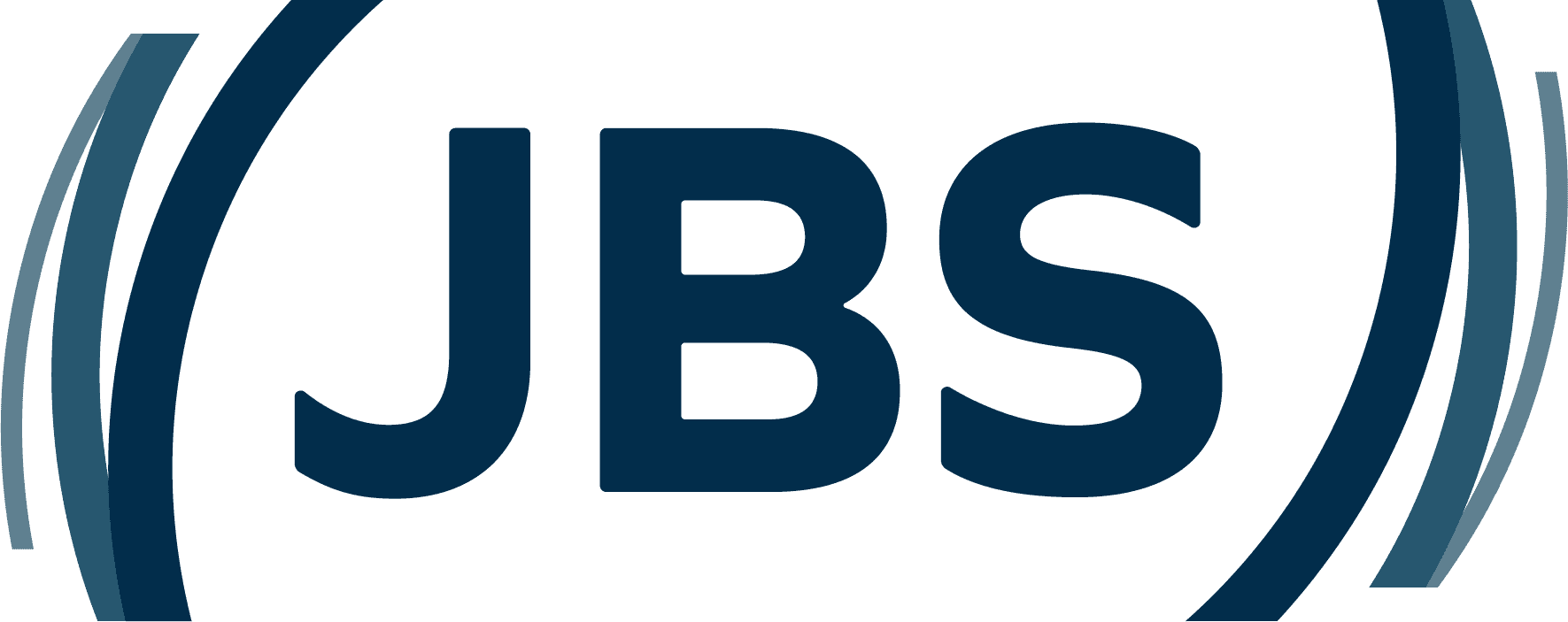Find your people, instantly

THAT CUTS TO THE
TALENT THAT FITS
Stop drowning in applications.
Cangrade’s AI-powered candidate screening platform instantly cuts through the chaos so you can focus on what you do best—building teams that make a real difference.
Explore our
Candidate Screening Platform
Finally, screening that works with you, not against you. Instantly streamline your talent pipeline with customizable, transparent AI candidate screening solutions. Built for HR teams who need reliable results without the complexity, we deliver:
JULES AI COPILOT
Screening that gets it
Stop playing resume roulette. Simply drop in your job description and watch our transparent, ethical AI instantly get straight to the candidates with the skills to succeed – reclaiming your time and improving hiring outcomes. Powered by industry-leading AI that explains itself.
- Resume Screen
- Talent Assessment | Behavioral, Hard Skills, and Job Simulation
- Structured Interview
- Reference Check
- EX
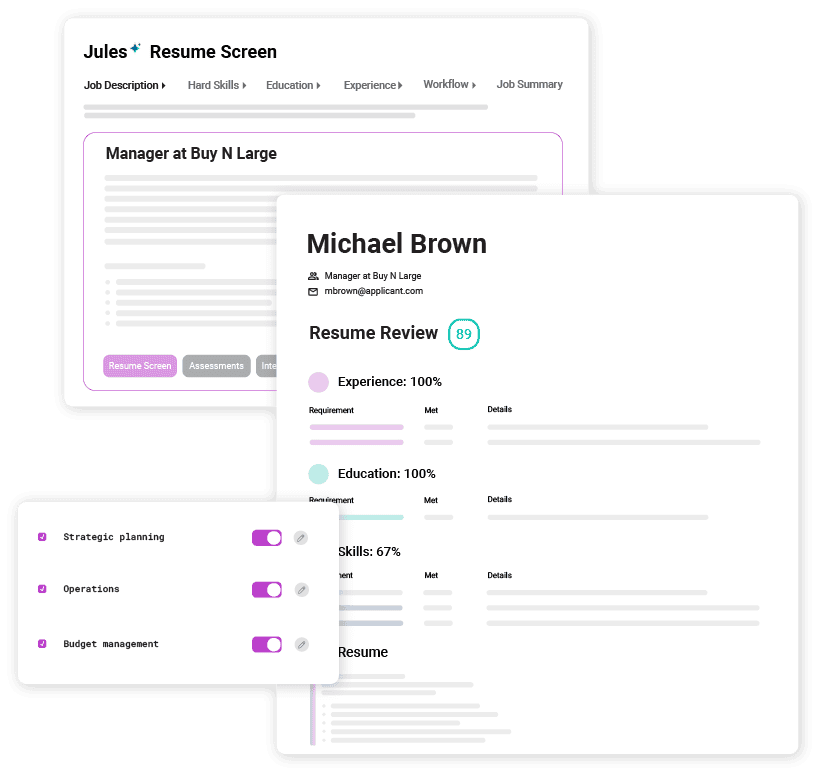
TALENT ACQUISITION
Prove your value, drive real results
Get end-to-end candidate screening built around your KPIs and talent data. Our ethical AI and award-winning team help you create a custom hiring process that targets your specific goals and proves your impact.
- Pre-Hire Soft Skills Assessments
- Hard Skills Assessments
- Job Simulations
- Candidate Reports
- Candidate Matching
- Structured Interview Guides
- Video Interviewing
- Reference Checking
- Hiring Automation
- ATS Integrations
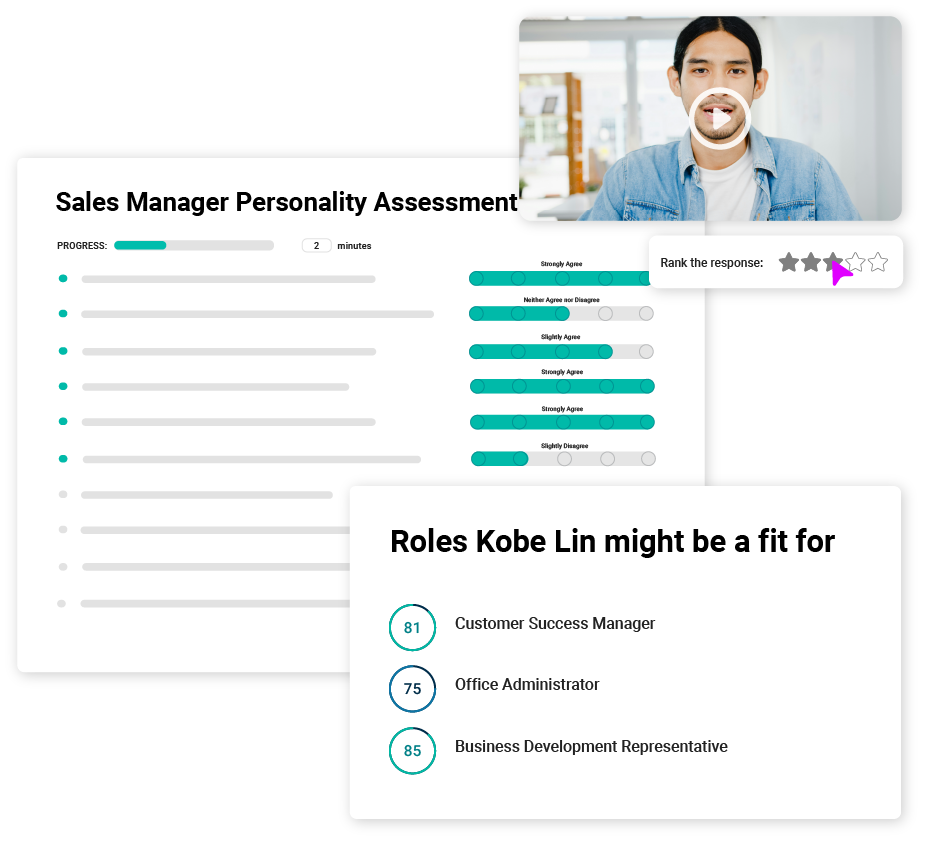
TALENT MANAGEMENT
Keep the good ones
Don’t let great hires become regrettable turnover stats. Extend the AI-powered talent intelligence that helped you hire them into onboarding and development to help them thrive and stick around.
- Onboarding
- Employee Retention Forecast
- Internal Talent Marketplace
- Development Pathways and Content
- ATS Integrations
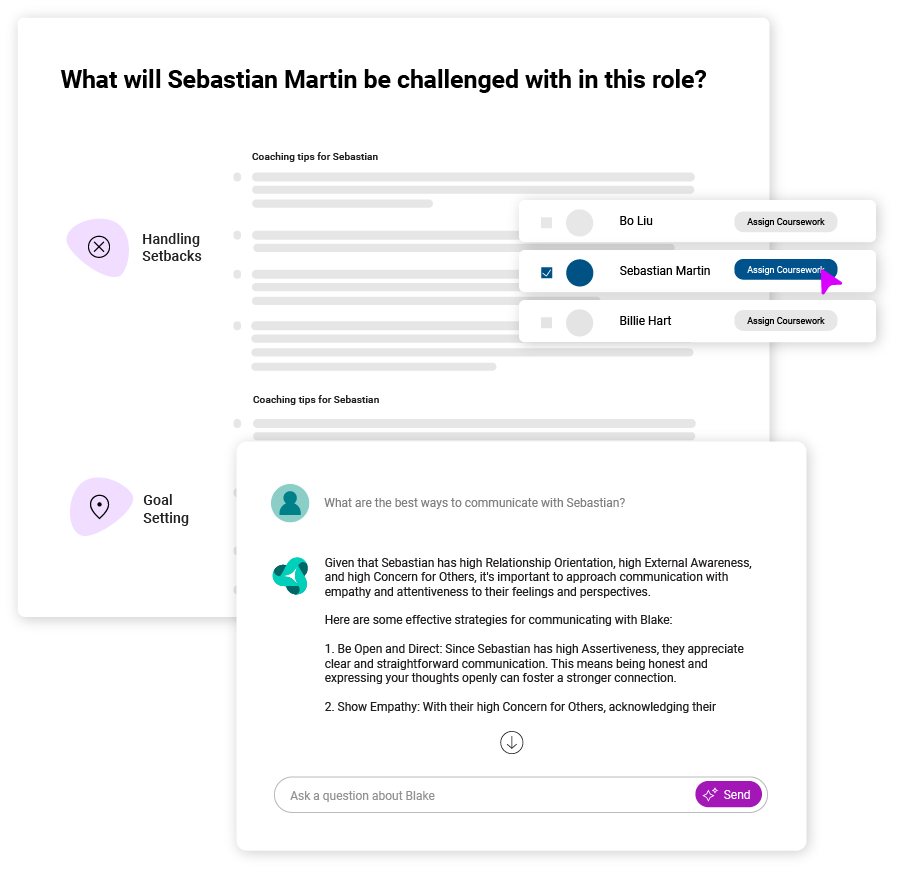
10x
more accurate predictions of success
81%
decrease in time-to-hire
27%
increase in interview-to-offer ratio
98%
candidate satisfaction
Built for busy HR teams
Stop drowning in busywork. Our intuitive, automated platform instantly removes time-consuming candidate screening processes, from resume review to reference checking, so you focus on what matters most—building great teams and making strategic decisions. Less administrative nonsense, more strategic impact.
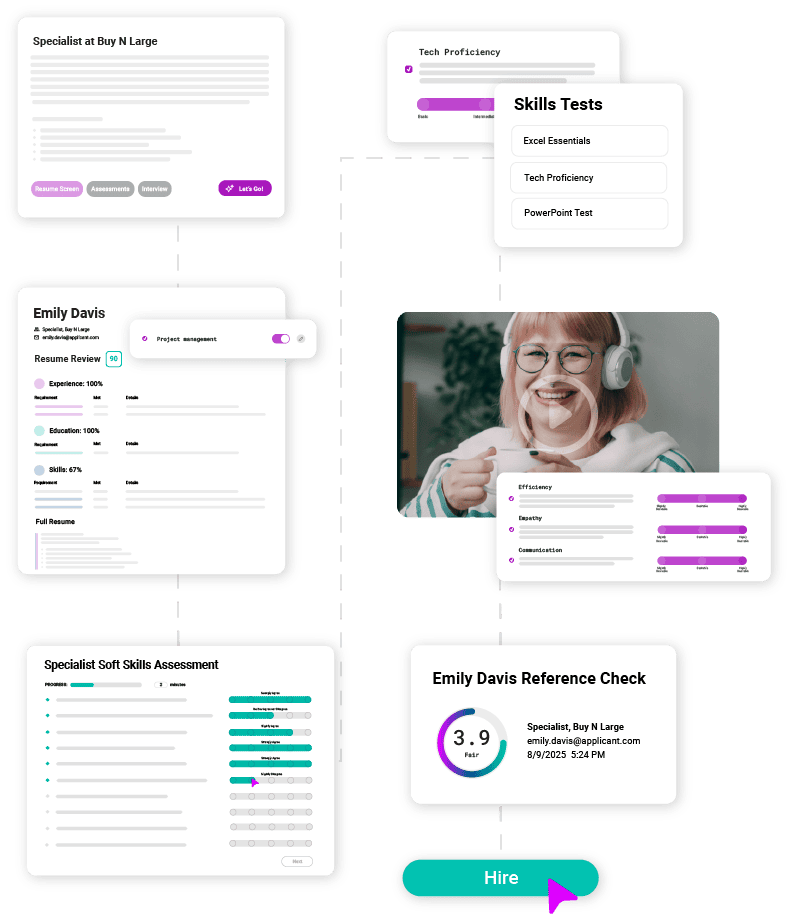
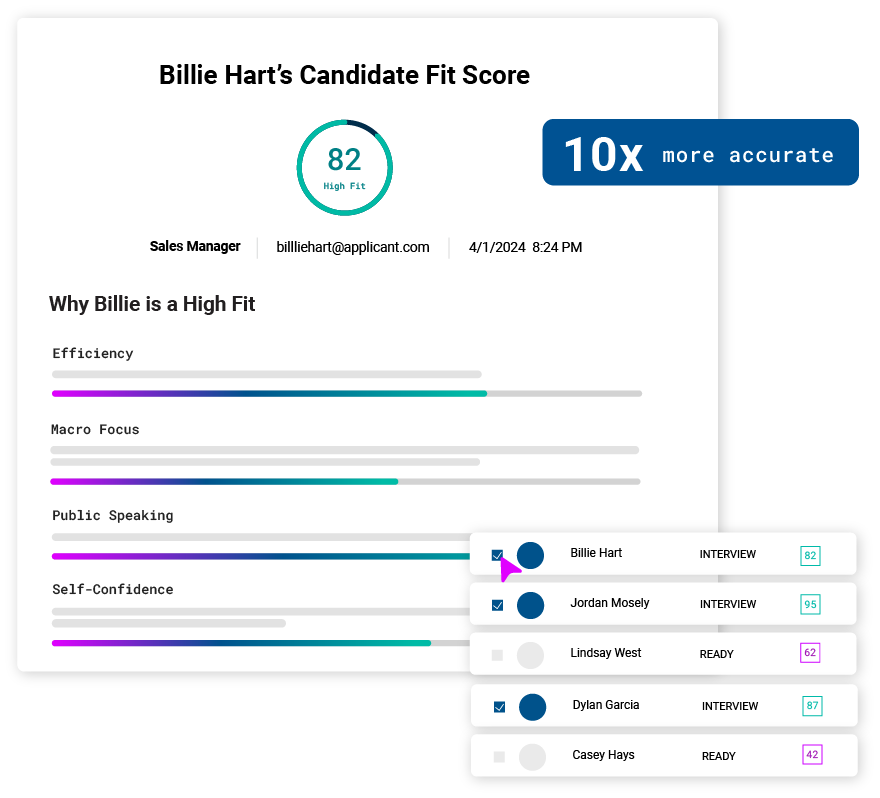
Quality results, proven outcomes
Show your impact and make smarter hiring decisions. See exactly why each candidate scored the way they did with visual reports that break down our AI’s thinking. No more wondering if you made the right call—get clear scores, transparent reasoning, and the proof you need to hire confidently, beat your competition to the best talent, and show ROI.
Transparent AI that listens to you
Set the rules, we’ll follow them. Our patented AI doesn’t make hiring decisions for you—it makes the decisions you want. Built-in controls and transparent scoring tied directly to your job requirements align every recommendation with your needs, not what an algorithm thinks is best. Stay in control of your hiring process with AI that works for you, not against you.
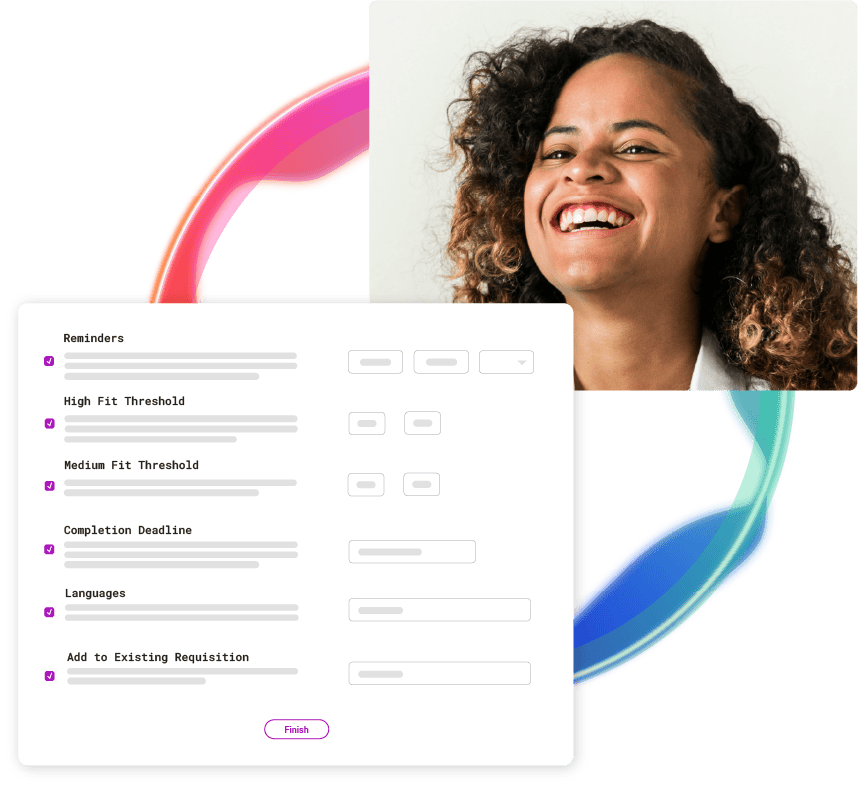
The Cangrade Difference
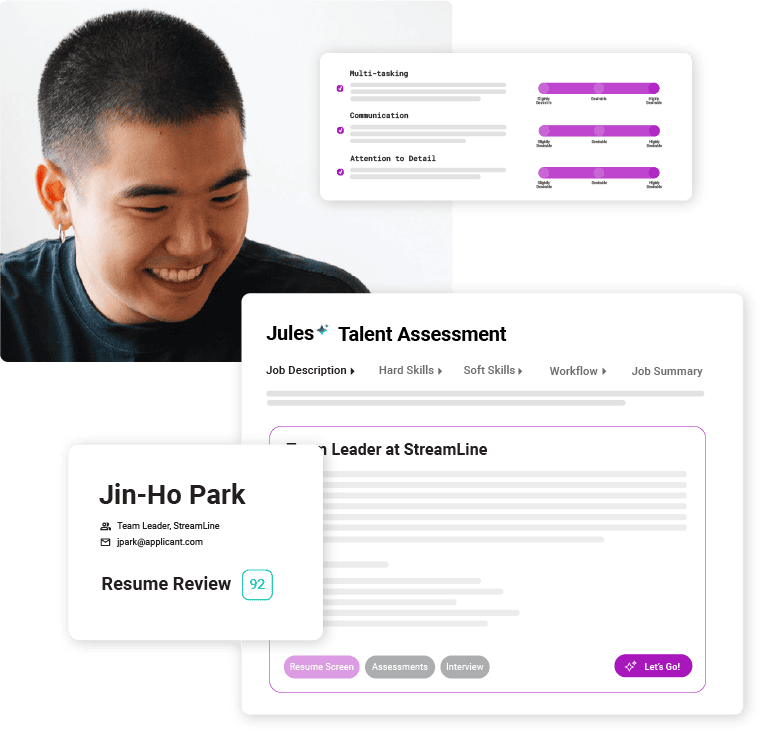
Customized solutions launched instantly
Get up and running in minutes, not months. Our customizable candidate screening platform adapts to your specific roles and requirements while launching instantly for immediate impact. No lengthy implementations or complex configurations—just reliable results when you need them.
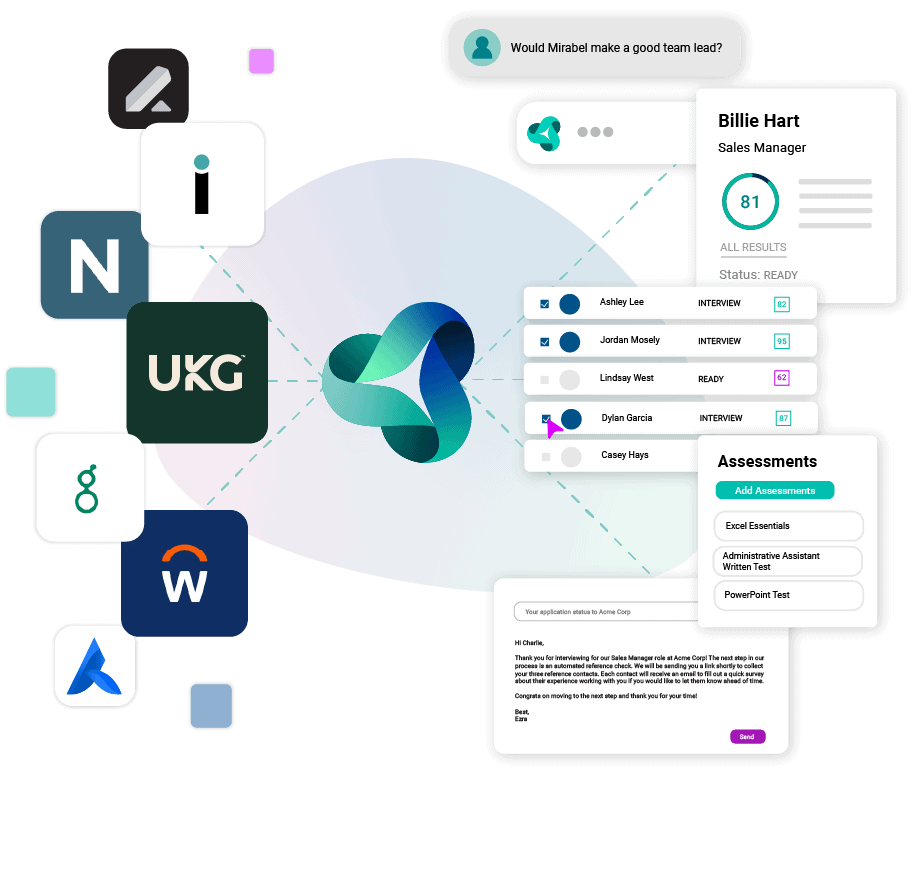
Fully integrated end-to-end solution
Don’t leave any efficiency on the table. Connect your entire tech stack without manual tasks or forcing your team to learn yet another platform. Cangrade’s integrations flow your talent intelligence through your systems to align teams, accelerate pipelines, and surface hidden talent.
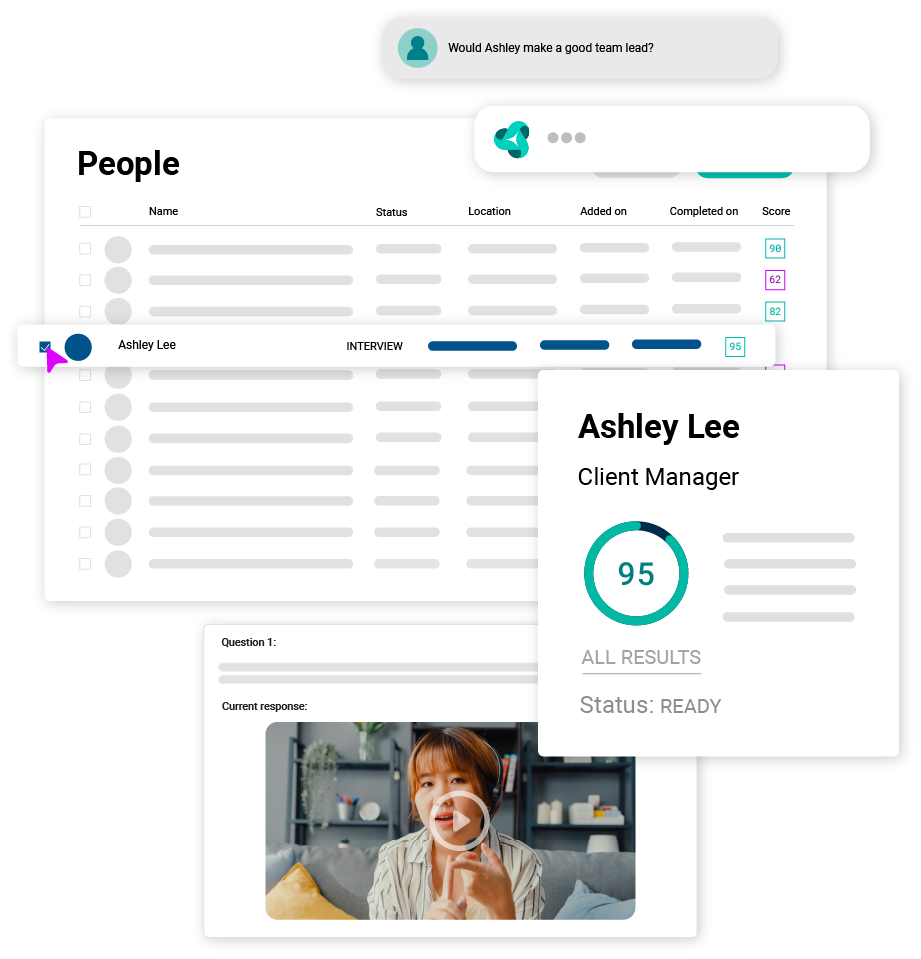
Best of both worlds: wisdom + innovation
We’ve been solving HR problems for over a decade, so we know what you actually need, not just what sounds cool in a demo. But we also innovate like a startup, building cutting-edge features and automation for your entire candidate screening process that legacy platforms can’t deliver.
A few of the organizations that trust us






